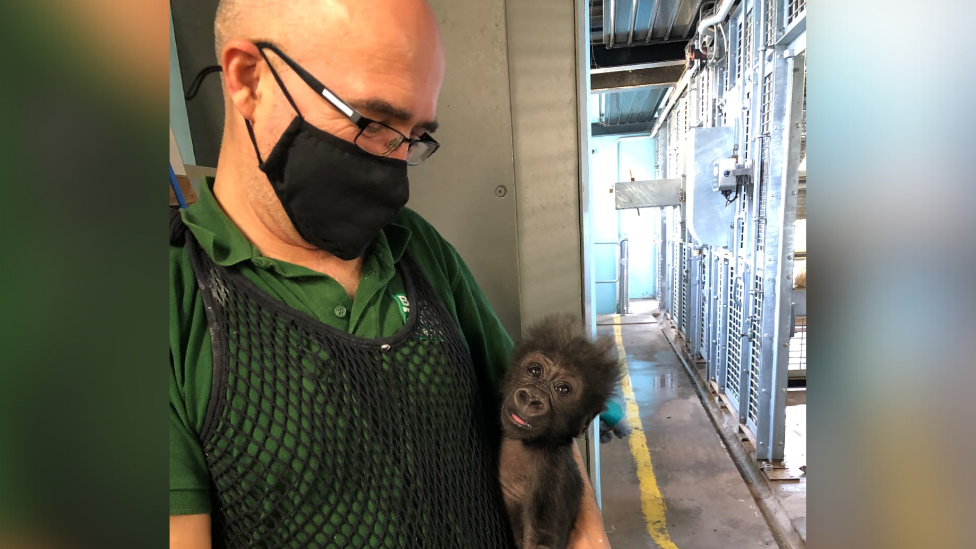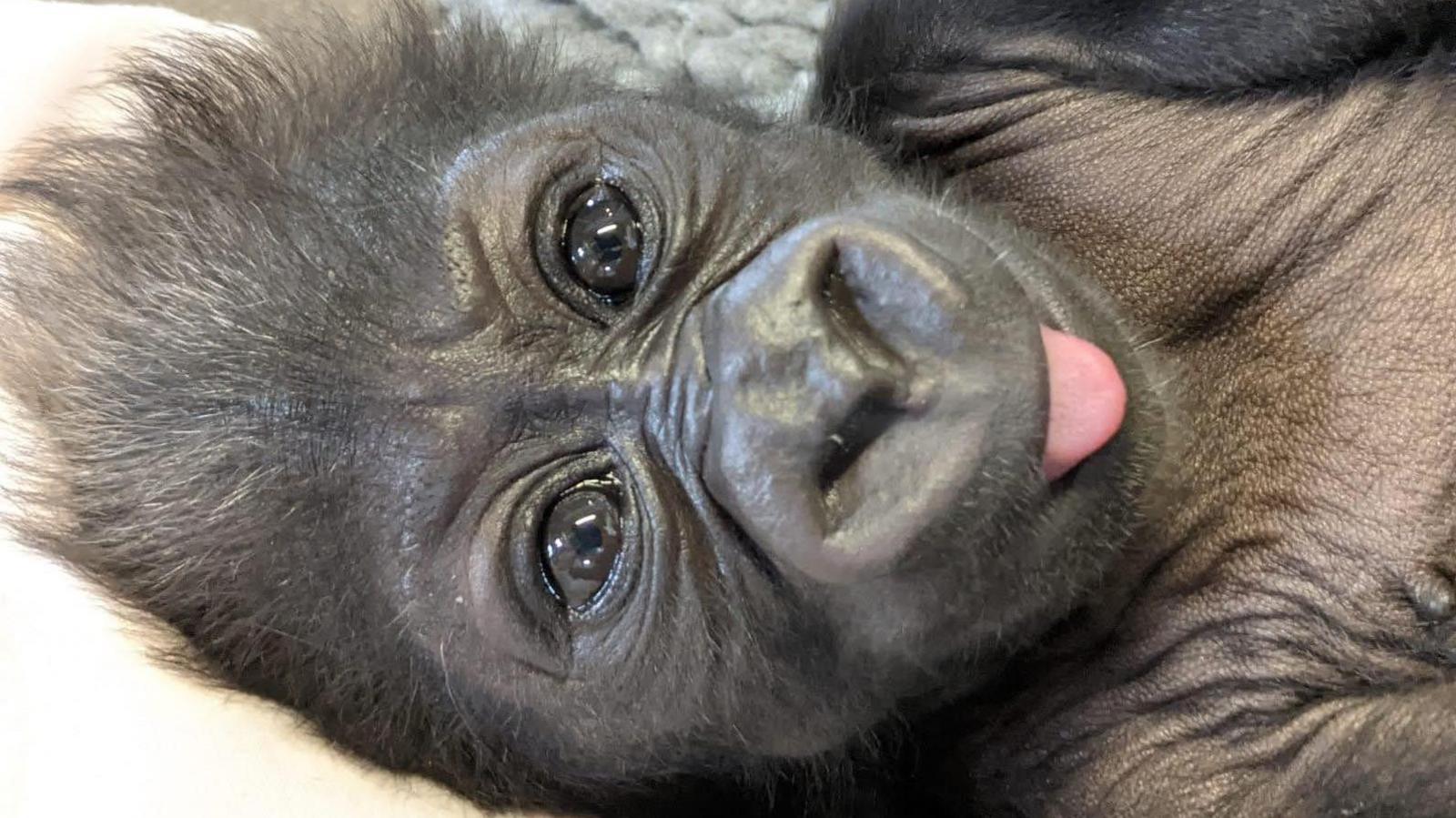Raising baby gorillas at home an 'amazing experience'
Former zookeeper Alan Toyne speaks to BBC Radio Bristol's Andy Bennett.
- Published
A zookeeper has described what it felt like to hand-rear two baby gorillas who were rejected by their mothers.
Alan Toyne, who spent 14 years working at Bristol Zoo, raised two infant gorillas - including one in his own home.
He has now published a memoir, Gorillas in Our Midst, about the "amazing" experience.
"[They're] just very hairy versions" of human children," Mr Toyne told BBC Radio Bristol.
Starting out as a volunteer keeper, Mr Toyne eventually became the leader of the team looking after mammals at the the zoo, caring for "everything from a naked mole rat" to the western lowland gorillas.
While most of his work revolved around the Clifton site where Bristol Zoo was based, he found himself faced with bringing up a baby gorilla at his home after four-week old Alfia was rejected by her mother Kera following a difficult birth.
"Hand-rearing is quite a rare thing to do," he said. "It means that the zoo keeper has to feed that animal milk until it is capable of eating solid food and feeding itself."

Mr Toyne wore a string vest to mimic a gorilla's fur
But what does hand-rearing a gorilla really look like in practice?
"Afia had to come home with me in a car seat, I parked outside the house luckily [and] took her in," Mr Toyne explained.
"She was pretty tiny but they grow and get pretty mobile quite quickly," he added.
Eventually, he added: "She was running around the house, yanking the wi-fi router out of the wall, jumping off tables.
"We taught them to walk, to play and to feed - and spent a long time wearing a string vest which kind of replicates the fur of the animals - so they cling onto you wherever you go."

The gorillas were eventually placed with surrogate mothers back at the zoo
As "incredibly intelligent animals" with "really complex" social hierarchies, it was important that Mr Toyne and his family recreated a similar environment to the one Afia and Hasani - another gorilla who was also later hand-reared by the zookeeper - would live in once they returned to the zoo.
"We used to eat all at the same time because it's quite important for them to eat at the same time as the other gorillas," he said.
"We'd sit around the table having our tea and she'd be eating veg, lettuce and cucumber. I say eating, she would be chucking a load of it on the floor."
Both Afia and Hasani grew strong enough to return to their own species and live at the zoo with surrogate mothers.
Welfare of animals 'top priority', says closed zoo
- Published4 July 2024
Zoo breaks ground on endangered species habitat
- Published28 June 2024
Campaigners hope to stop ex-zoo plan for 196 homes
- Published29 January
Bristol Zoo Project, which has reopened on a new site on the northern outskirts of the city, has come under recent scrutiny for keeping some of its animals - including gorillas - on the closed Clifton site while construction is under way on their new enclosures.
Trespassing incidents have been reported at the former zoo site, which Mr Toyne said could have an impact on the gorillas.
"You've got Jock, the silverback, whose job it is to protect his family group, he's really elderly now. The stress that puts on him, with people crashing around in the middle of the night, is awful," he said.
Director of conservation and science at Bristol Zoological Society, Brian Zimmerman, has previously said the incidents were being taken "extremely seriously", adding the "care and welfare" of animals was "top priority".
Zookeepers also took part in a Facebook livestream where they explained that they still work at the Clifton site to provide the same level of support and care to the animals.
"The animal's requirements haven't changed. They still eat the same food, they still need the same enrichment and the same training," they said.
Get in touch
Tell us which stories we should cover in Bristol
Follow BBC Bristol on Facebook, external, X, external and Instagram, external. Send your story ideas to us on email or via WhatsApp on 0800 313 4630.